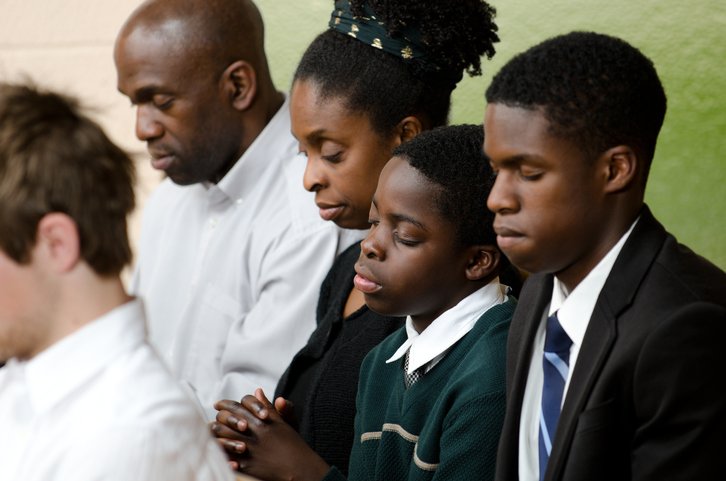Writing a Memorable Eulogy: How to Capture the Essence of a Life in Words
Funerals are a difficult time for everyone, but they can be especially challenging for friends or relatives who have been asked to deliver a eulogy.
In essence, the eulogy serves as a personal tribute to the departed, summing up the key events of his or her life. But more importantly, it should paint a picture of the deceased and the attributes that made him or her so special. Sharing those unique qualities in a meaningful way is a both a great responsibility and a great honor. If you’ve been asked to talk about the life of the deceased, here are ten suggestions to help you create and deliver a remarkable and memorable eulogy.

- Recognize the importance of the task at hand. Writing and delivering eulogy isn’t easy. It may hurt to compose it. And even if you’re adept at public speaking, reading it may feel like an insurmountable task while you are also dealing with agonizing grief. But remind yourself how lucky you are to be chosen to shoulder such an awesome responsibility. You get the last word in framing and sharing the life of your loved one. That’s a wonderful gift that you will surely cherish for the rest of your days.
- Keep it positive. A eulogy is more than just a list of great qualities of the deceased. It’s also a chance to remember and share fond stories of his or her life with friends and family members. Don’t dwell on the negative. Stick to the happy and uplifting. You may get choked up anyway, and that’s perfectly OK and should be expected.
- Incorporate a lesson. Is there something you gleaned from your loved one that has changed you for the better? Something you’ve learned or will do differently? Maybe you’ll attack each day with greater enthusiasm, try to be more patient, or treat others with more compassion. Find some way to show that the spirit of the deceased will live on in you, or perhaps in others.
- Be mindful of the clock. A page or two will likely be enough to fit some good stories in, but it all depends on how close you were with the deceased and how many accounts you wish to share. It also depends up on if you are the only speaker or if there will be several eulogies. There’s no specific time limit on a eulogy, but keep in mind that this it’s just one part of the funeral or memorial service. Three to five minutes is probably a good timeframe to shoot for.
- Practice makes perfect. You should practice so you’re as ready as you can be. Read it aloud to yourself several times. And do bring your notes with you when it’s time to speak. There’s no shame in referring to notes or a script. This may be the toughest thing you ever do and it will be easy to lose your focus, so you’ll be glad to have the words in front of you if you need them.
- Introduce yourself. Although you may know most if not everyone in the audience, it’s a still good idea and proper etiquette to remind people of your name and your relationship to the deceased. For example, you might say something along the lines of, “For those of you whom I haven’t yet had the pleasure of meeting, I am Paul Doe, John’s youngest brother.” This is also an appropriate time to thank the funeral guests for attending the service. You might make a special mention of anybody who travelled from far away to be there.
- Speak slowly and enunciate. You wrote the eulogy and you know how you feel about your loved one. However, your audience may not know the deceased the way you do, so they will be likely be hanging on your every word. Although you may be nervous, try to speak slowly and enunciate, so that those in attendance can hear and understand what you’re saying. This will allow them to join you in reflecting upon the cherished memories you’re sharing.
- Make eye contact. When speaking, try to look up at the audience occasionally. If you’re unable to look directly at any one person, you can always pick a spot in the audience or venue to glance at every now and then. Holding your head up rather than looking down at a piece of paper will provide a better listening experience for your audience.
- Take a deep breath and carry on. No matter how much you prepare and how controlled you may feel, the emotion of the day is bound to catch up with you. It’s OK if you mess up. It’s OK if you cry. It’s OK if you lose your train of thought. People will understand. Just pause, breathe deeply and move on when you’re ready.
- End it on the right note. When you’re ready to wrap up your talk, this is a great time to leave your audience with one final favorite memory. It is also an opportunity for you to share some words of encouragement to others who are also grieving the loss of your loved one.
If you’re honored with the task of writing and reading a eulogy for a loved one, think of it as important part of the process of saying your final goodbye. Looking for further assistance? Our knowledgeable, compassionate funeral directors are here to help. Please reach out to us anytime.
About Vaughn Greene Funeral Services: For more than 20 years, Vaughn Greene Funeral Services has been providing a ministry of care to Baltimore’s African American community. As a leading local, minority- and family-owned provider, we promise to provide our highest level of service and respect to families who entrust us to honor their loved one. For more information, please call us at 410.655.0015 or visit us online at https://vaughncgreene.com/.










Comments